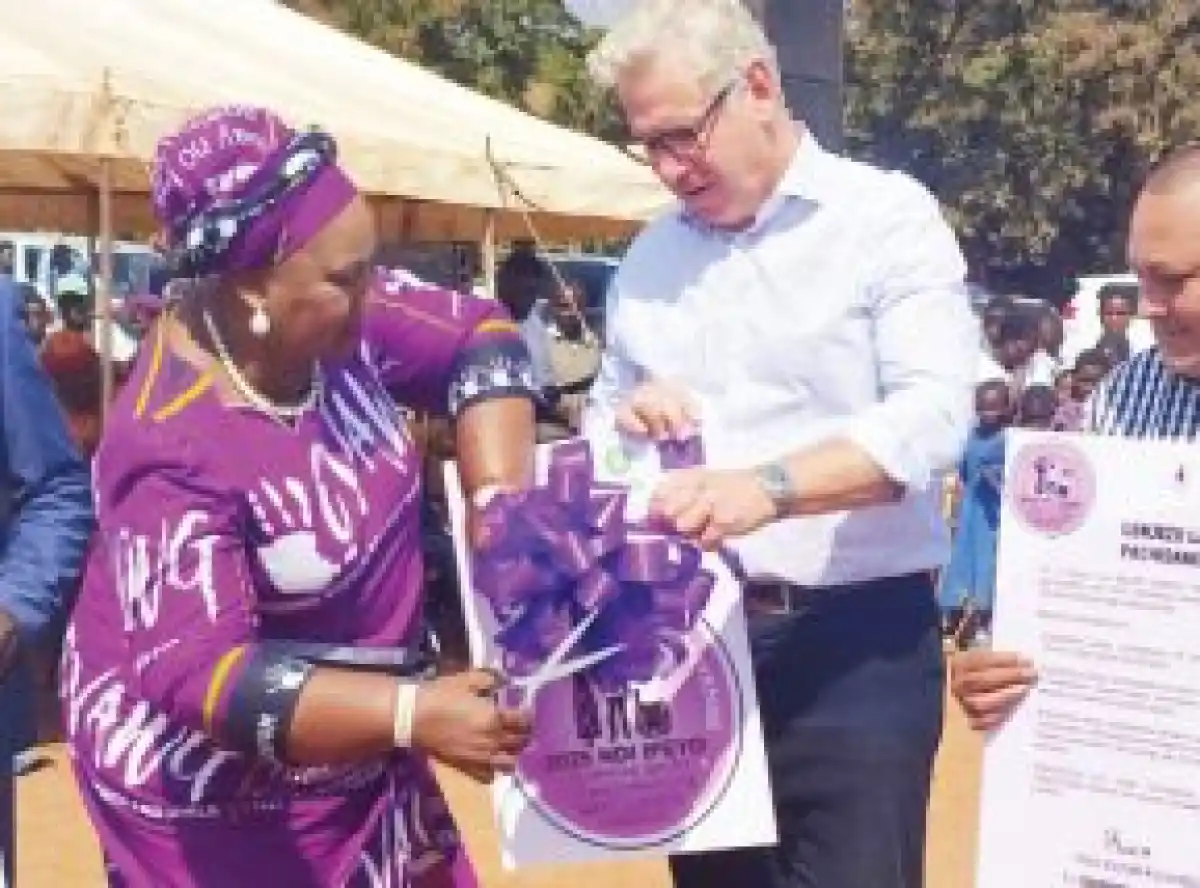
European Union (EU) Ambassador Rune Skinnebach has called for a functional democracy in Malawi if the country is to achieve meaningful development.
The diplomat made the call yesterday in Mulanje District during the launch of a K7 billion Promoting Gender Transformative and Inclusive Participation of Women, Youth and Marginalised Groups in Electoral Processes project funded by the EU.
Skinnebach said for 30 years, Malawi has had a democratic regime, “but not necessarily a functional democracy”.

by Skinnebach (C) and party representatives
He said: “Democracy comes with rights and duties and to fulfil these, you need not worry about what to eat tomorrow. As citizens, you need to hold those in power accountable. In this sense, Malawi is not succeeding well.”
On a positive note, Skinnebach acknowledged Malawi’s achievements in electing female leaders, saying it is doing well in this area.
He said: “Malawi was the second country on the continent to have a female President and Speaker of Parliament.
“In 2019, Malawi had 45 female members of Parliament. But democracy is more than representation in Parliament, it is at all levels. And there, Malawi has more work to do.”
Minister of Gender, Community Development and Social Welfare Jean Sendeza, who officially launched the project, applauded the EU for promoting the participation of women, youth, people with disabilities and other marginalised groups in politics in the country.
“As a ministry, we will ensure that the funds committed by the EU trickle down to the intended beneficiaries,” she said.
The EU has committed K7 billion to the project which Oxfam in Malawi and the Women’s Legal Resources Centre will implement in Rumphi, Mzimba, Salima, Dedza, Machinga, Mulanje and Nsanje districts.
Oxfam in Malawi country director Lingalireni Mihowa emphasised on the need for close collaboration with political parties to ensure the project’s success.
She said: “We have been working with political parties from the beginning because we realised that they can be an enabler as well as a stumbling block to this project.”
Mihowa said the funds will be used to fund political campaigns, pay nomination fees and produce campaign materials for women, youths and other disadvantaged groups aspiring to take up political positions.
During the launch, political parties, represented by their secretaries general, signed a commitment to promote the political participation of women, youths, people with disabilities and other marginalised groups.
The project will collaborate with six political parties represented in Parliament, namely Malawi Congress Party, Democratic Progressive Party (DPP), United Democratic Front, UTM Party, People’s Party and Alliance for Democracy.
UTM secretary general Patricia Kaliati affirmed her party’s support, saying: “Our party will not stand in the way of women, youths and other disadvantaged groups wishing to vie for various positions.”
Similar commitments were made by secretaries general or their representatives from other political parties.
Mulanje Pasani legislator Ebbie Mathanda (DPP) described the project as a significant initiative that will bring change in political representation in Parliament.
She urged continuous support for women, youths and persons with disabilities even after they are elected to Parliament.
In attendance during the launch were Dean of the Diplomatic Corps and Zimbabwe High Commissioner Nancy Saungweme, Speaker of the National Assembly Catherine Gotani Hara, Mulanje district commissioner Dave Gondwe, women legislators, traditional and religious leaders, women’s rights activists and women from various professions.






0 Comments